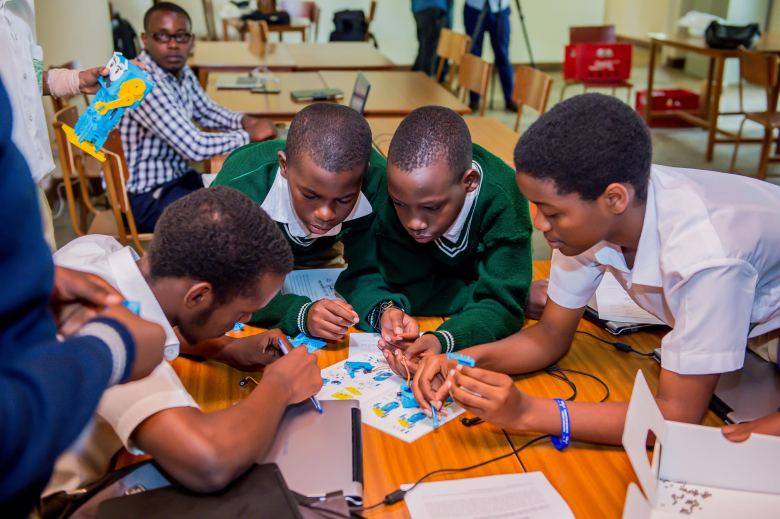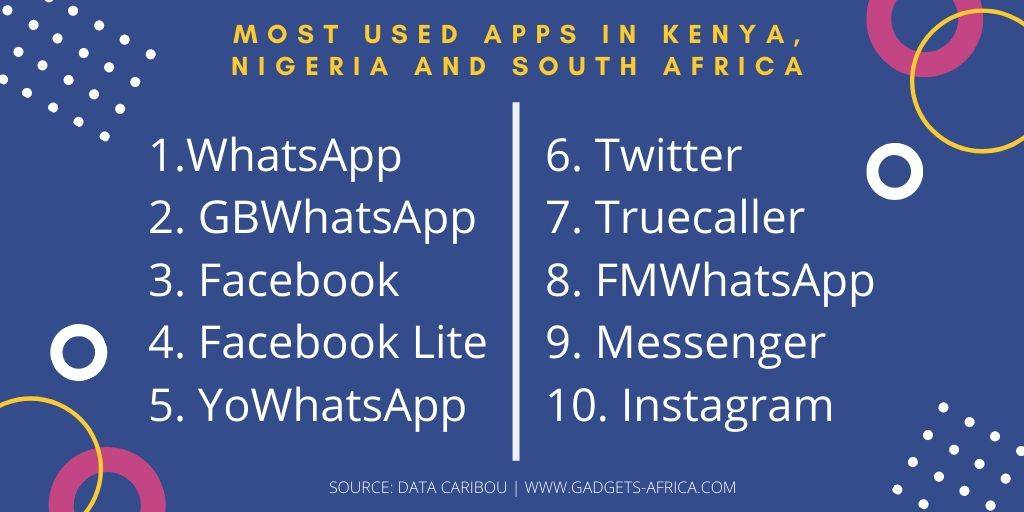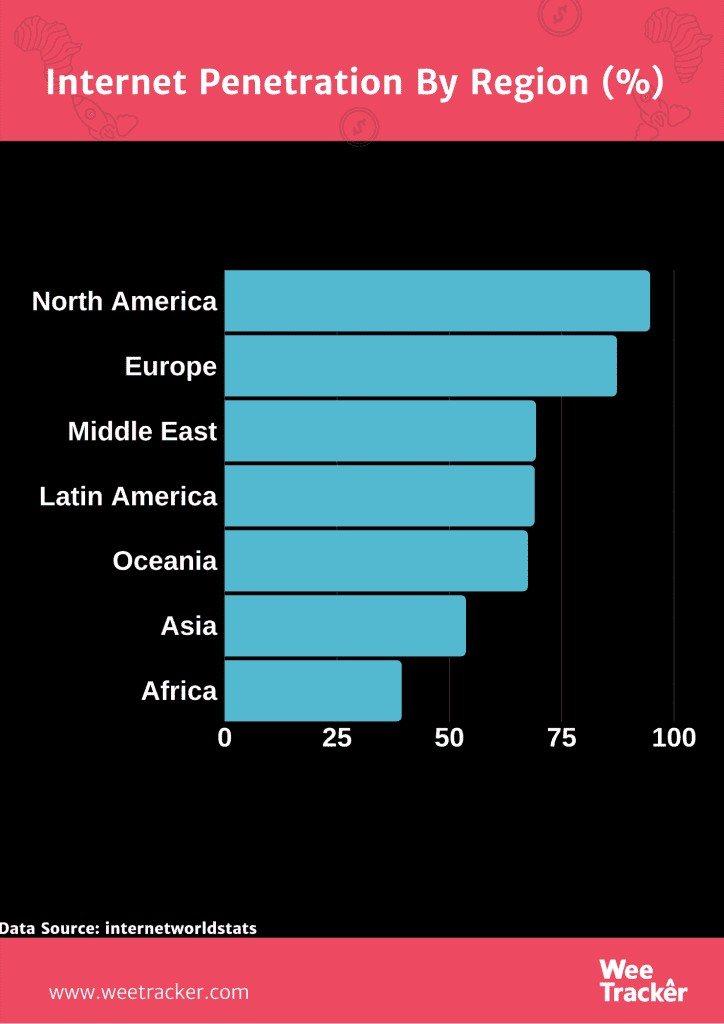African Edtech Faces Surprise Competition From Africa’s Most Popular App

Like many other activities, schools remain mostly shuttered worldwide — no thanks to the global pandemic that has already caused more than 347,000 deaths all over the world.
The United Nations Educational, Scientific, and Cultural Organization (UNESCO) estimates that nationwide lockdowns and closures have now impacted over 91 percent of the world’s student population.
This means that over 1.5 billion learners have had classes disrupted due to the COVID-19 pandemic. And there’s yet no clarity on when normal classes might return.
But crisis can also be opportunity, and this one has certainly been edtech’s shot at going mainstream — especially on the African continent where edtech adoption is still quite low.
“Education technology is one major way to help students continue learning despite the school closure as a result of COVID-19. There are several reasons why schools, teachers, parents, and guardians should turn to online learning platforms for their wards at this time,” Sim Shagaya, ex-Konga boss and founder/CEO of edtech enterprise, uLesson, told WeeTracker.
Indeed, with schools closed indefinitely, platforms that combine innovative learning techniques with digital technology have come to the fore across Africa. However, such edtech platforms may now be facing a new kind of competition from an unlikely source.
In Africa, WhatsApp groups, and, to some extent, Telegram channels, are starting to look like the biggest competitors of edtech startups in Africa. It might sound odd but scores are tapping into these platforms to offer educational services on the cheap to multitudes who find the offer more appealing, affordable, and accessible.
WhatsApp/Telegram learning, really?
The fact that WhatsApp is the most-used app in Africa isn’t exactly much of a big reveal. But the popularity of the app is, sort of, amplified by data which suggests that three unofficial WhatsApp clones — also known as “WhatsApp mods” or “modded WhatsApp versions” — are among the top 10 most-used apps in Africa.
In addition, one of those three modified versions of WhatsApp, GBWhatsApp, is, in fact, the second-most used social messaging app in Africa — used even more than the Facebook app and only behind WhatsApps’s official version. Go figure!

There are 200 million+ social media users in Africa and WhatsApp is the most preferred messaging platform. WhatsApp is used by 73 percent of internet users in Kenya, 53 percent of internet users in Nigeria, and 49 percent of internet users in South Africa. In 2018, WhatsApp accounted for almost half of all mobile data used in Zimbabwe.
WhatsApp’s ease of use, even in areas with poor internet connectivity and spotty connection, makes it the most-preferred social messaging platform for all demographics in these parts. Its “Group” feature is also a plus.
These groups exist for various purposes — ranging from formal business discussions to informal conversations with family and friends — but they are increasingly becoming popular for educational services in these times.
How it works
A number of schools and teachers are keeping their classes going through WhatsApp groups. Besides that, private tutorials and classes shared via text, voice notes, and short clips are becoming increasingly available on WhatsApp groups.
These groups are typically run by administrators (admins) who charge a small fee to impart people with specific knowledge and skills. Groups are more controlled now that WhatsApp upgrades give admins the power to control who gets to send messages to the group.
Boye Oshinaga, CEO of Gradely, did acknowledge WhatsApp’s increased use as an edtech tool.
“WhatsApp has become the last resort for some schools and teachers as they grapple to provide education in unprecedented times such as these. WhatsApp offers advantages of being a widely-used communication app and therefore some schools and learning communities have adopted it to share lesson notes, discussion topics and engage with their students,” said Oshinaga.
Telegram, which doesn’t have as many users in Africa as WhatsApp (except in Ethiopia where it’s the most popular social messaging app), is also seeing increased use as a tool for education in these times.
Through Telegram channels, classes are held and Telegram even has a further advantage over WhatsApp in that older content shared in the group can be accessed by newer users.
WhatsApp learning vs Edtech
Of course, learning via WhatsApp and Telegram is not nearly as immersive, intuitive, and enjoyable as proper African edtech platforms like Eneza Education, eLimu, Snapplify, ScholarX, Yusudi, Gradely, BeBlocky, SimbiBot, uLesson, M-Shule, Tuteria, Ubongo, and the likes.
“Most online learning involves sending work home (homework), a classroom without audio/video, and a classroom with audio/video,” Oshinaga explained.
“WhatsApp can fulfill all three criteria partly, which is why it works for online learning to an extent. However, it is not optimal due to the fact that it is not organized. It’s one continuous stream of conversation. In schools, we have desks and drawers for a reason. There are no equivalents in WhatsApp.”
He added, ”Another area where WhatsApp fails is in assessment and tracking individual student progress with learning. Yes, you have disseminated information but who has learned, and by how much? This is an area that apps and LMS like Gradely excel over WhatsApp, and the experiences that help with this critical part of education is difficult to replicate on WhatsApp.”
Actually, it turns out individuals can pretty much learn with any technology service (i.e. WhatsApp and the likes) when combined with a pedagogical plan; “learntech” is the term loosely used to describe this concept.
Out of 1295 students from 25 African countries who participated in a study that was published in June 2019, 94 percent indicated that they used social media to support their education experience. However, edtech platforms are typically the most suitable solutions, combining content with a delivery method.
In any case, there’s no denying that learning via messaging app is a pragmatic, relatively less optimal approach that caters to a good number of people — especially those who are cut out by the economic/infrastructural demands of formal edtech platforms.
What’s driving WhatsApp/Telegram learning?
Edtech companies are promising to unlock Africa’s potential through leveraging educational technologies. But there are many daunting challenges that block their path to mass market adoption
More than 800 million people in Africa don’t have access to the internet. According to the Digital 2020 Global Overview Report, only 33 percent of Africa is online. Internet penetration is currently 39.3 percent; the world’s lowest.

Electricity is also a challenge. At the current 43 percent electricity access rate, the continent trails the global access rate of 87 percent by half. Then, there’s the poverty statistic which says 85 percent of the continent’s population lives on less than USD 5.50 a day and 70 percent live on less than USD 1.90 daily.
Also, there’s the statistic that says an estimated 90 million children in Sub-Saharan Africa are out of school, as governments continue to skirt around the widespread issues bedeviling access to quality education. Even in South Africa, the continent’s most industrialized economy, only 40 percent of pupils finish high school.
Most edtech platforms set out to offer qualitative educational resources via apps and other online platforms, accessed via electronic devices owned by people who can afford such devices plus internet and also have a knowledge of how it works, while charging a fee that is inexpensive but not necessarily cheap. Hence, the barriers to edtech in Africa.
And that’s probably why WhatsApp groups and Telegram channels are popping up as alternatives these days. These are popular apps that people use daily, there’s no need for superb internet/electricity, and the classes cost significantly less.
Is it worth it?
Apparently, for many people, the trade-off between premium immersive learning and cheap accessible training on a messaging app is an easy choice to make.
“I’m studying for my upcoming exams and a friend told me about a WhatsApp group where I can take lessons in math for just 500 monthly [sic]. I got the group link for new entrants, made the payment, and was added to another group. The lessons hold every day except weekends and it’s not bad if you ask me,” WeeTracker gathered from Ada Ejiofor, a 16-year-old Nigerian senior secondary school student.
When asked about educational apps, she communicated her awareness of such platforms, as well as their perks, but maintained that the WhatsApp group offer was more convenient.
For perspective, Shagaya’s uLesson recently introduced a NGN 5 K (USD 12.80) stream-only access to the full senior secondary school library for one term (ending August 31st). The NGN 29.5 K (USD 75.53) package which comes with the pack (dongle and SD card) was also reduced to NGN 24.5 K (USD 62.73).
uLesson’s offer is inexpensive (considering what’s on offer), but still not cheap. Nor is overpriced; educational content typically takes up a lot of resources to develop, update, and distribute. Hence, the pricing is often a pain point.
To their credit, though, a number of African edtech startups have found a way around some of the hurdles associated with edtech propagation on the continent. But the sector still looks a long way off from where it ought to be.
However, Gradely’s Oshinaga believes that African edtech is on a great path and that the threat from WhatsApp groups isn’t much of one.
“Edtech companies can do a better job of building mobile-first applications that have some of the elements of virality than apps like WhatsApp do. Some of that is technology infrastructure to allow the seamless addition of new members, file sharing, and posting that can easily be replied,” he said.
Oshinaga further emphasized, “Edtech apps need to support data persistence so that students and teachers can still have an offline experience when data is no longer available or is limited.”
In terms of affordability, he maintained that pricing for volume adoption and focusing on increasing user activity is what’s important to edtech companies now.
“As economic realities improve, companies can adapt pricing to match increased purchasing power. In addition, the strategy of differentiating pricing for different classes of customers helps to not alienate those who would not ordinarily afford a premium product.”
Featured Image Courtesy: The New Times